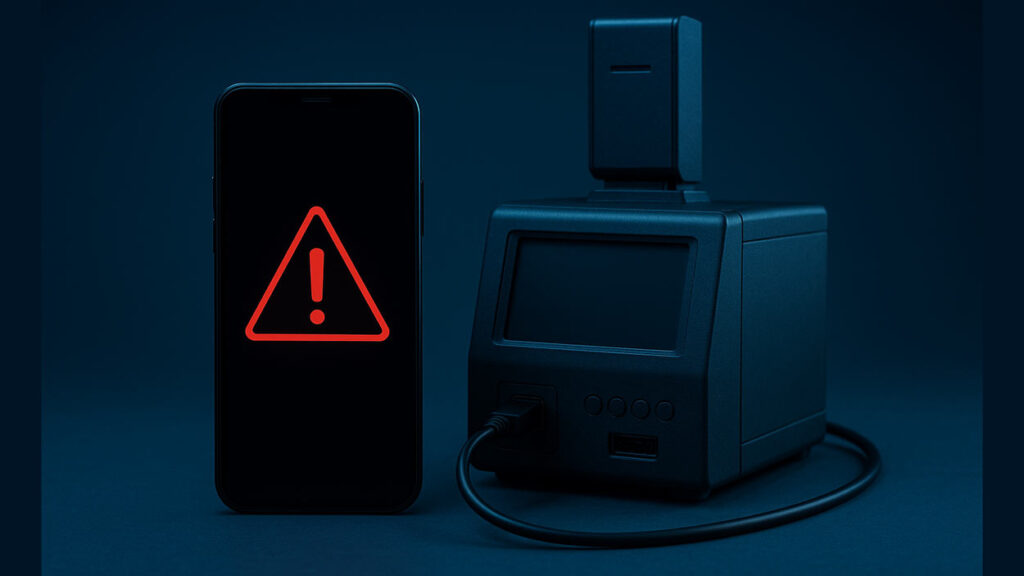Chinese authorities are using a new malware tool named Massistant to extract personal data from seized smartphones, raising serious privacy concerns for residents and travelers.
TLDR:
- Massistant, developed by Meiya Pico, extracts data from physically confiscated Android phones.
- The malware captures texts, photos, location history, and encrypted messages, even from apps like Signal.
- Deployed at border checkpoints, it does not require a warrant or advanced hacking techniques.
- Security researchers warn travelers to expect surveillance and potential data compromise in China.
Ever thought about what happens when your phone is taken at a border checkpoint in China? A new report reveals it might not just be held for inspection. It could be digitally strip-searched.
Researchers have uncovered Massistant, a sophisticated malware tool used by Chinese authorities to extract nearly everything from your phone from texts and chats to photos, audio, and even your location history. And the most disturbing part? It doesn’t even require a warrant.
What Is Massistant and Why It Matters
Massistant is an Android-based forensic malware developed by Xiamen Meiya Pico, a Chinese tech firm sanctioned by the U.S. in 2021. Unlike traditional malware that sneaks into devices remotely, Massistant is installed physically on confiscated phones.
Once planted, it can:
- Extract messages from standard SMS and encrypted apps like Signal
- Pull photos, contact lists, and audio recordings
- Retrieve location data and browsing history
While it doesn’t work on iPhones as confirmed by Lookout researchers, images on Meiya Pico’s website suggest the company might be working on an iOS-compatible version.
How It Works
The malware requires that a phone be unlocked, either willingly or through simple police requests. From there, it’s connected to a hardware station that interfaces with a desktop system for full extraction. This eliminates the need for advanced zero-day exploits or backdoor hacks.
According to Kristina Balaam from Lookout, “Anybody traveling in the region needs to be aware that the device they bring into the country could very well be confiscated and anything that’s on it could be collected.”
Posts on Chinese forums even suggest users discovered the Massistant app on their devices after encounters with police, confirming the widespread use of this tool.
A Pattern of Digital Surveillance
Meiya Pico dominates roughly 40 percent of China’s digital forensics industry. Beyond Massistant, the company has developed other tools like PasivRobber and its predecessor MSSocket, first analyzed in 2019. These are all part of what Lookout researchers call “a big ecosystem” of surveillance malware.
Despite being blacklisted by the U.S., Meiya Pico continues to:
- Expand internationally through partnerships across Russia, Southeast Asia, and the Middle East
- Provide training and lab setup for digital forensics in countries along the Belt and Road Initiative
Signal May Not Save You
Signal is known for being secure, but not invincible. Extraction depends on factors like:
- Device model
- Whether the phone is in AFU (After First Unlock) mode
- Use of tools like Cellebrite or GrayKey
Studies show Signal data is hard to recover but not always impossible. Tools like OxyAgent are designed to seek out Signal backups specifically before attempting extraction.
What Can You Do?
Massistant does leave behind traces on the phone, meaning it can potentially be found and deleted. It appears as an app or can be removed using Android Debug Bridge. However, by the time it’s discovered, the damage is already done.
CoinLaw’s Takeaway
Honestly, this makes me think twice about what I carry on my phone when I travel. It’s not just about having “nothing to hide” anymore. With tools like Massistant, even encrypted apps like Signal aren’t totally safe. If you’re visiting China or similar high-surveillance regions, you might want to bring a clean device or leave your main phone at home. This kind of digital overreach is unsettling, and it shows just how blurred the line between policing and surveillance has become.
